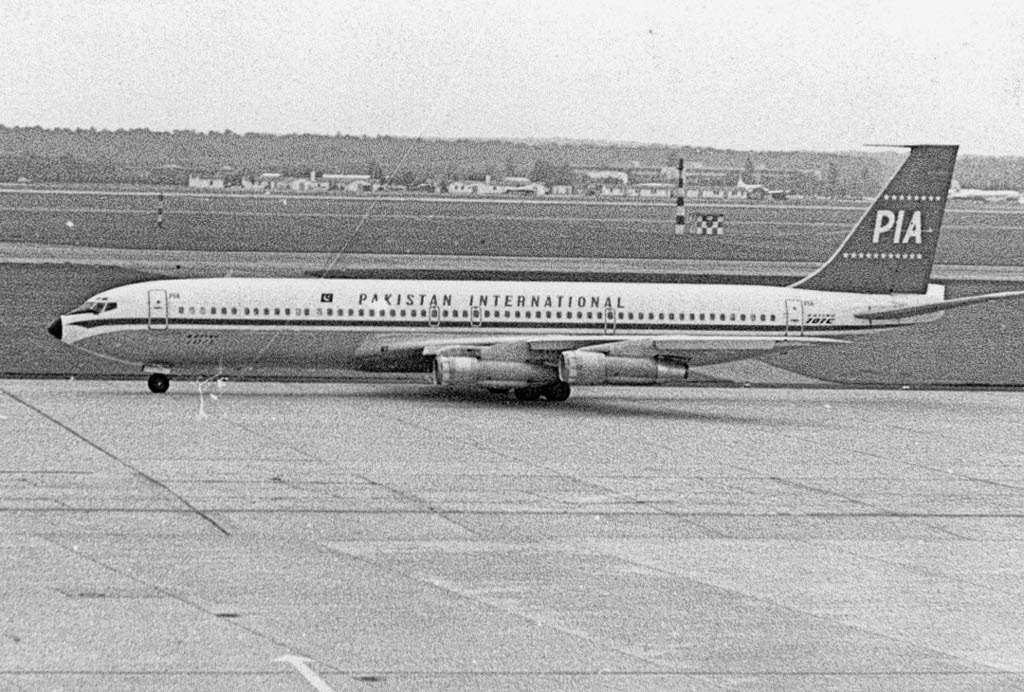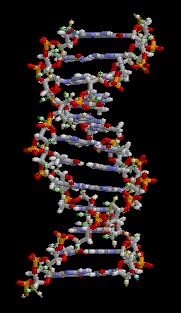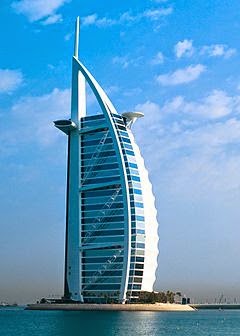There is turmoil in the World. A global cyclone, unprecedented in human experience, is gaining momentum. By the time it has run its course, it will have blown away the seemingly rock solid ideological foundations that have underpinned the modern period.
John Maynard Keynes put it best: “The ideas of economists and political philosophers, both when they are right and when they are wrong, are more powerful than is commonly understood. Indeed the world is ruled by little else. Practical men, who believe themselves to be quite exempt from any intellectual influence, are usually the slaves of some defunct economist.”
The theories and ideas that rule the world today run the gamut from Adam Smith's 'invisible hand', through David Ricardo's concepts of equilibrium to, efficient markets, free trade, perfect information, development, privatization, growth, risk, reward and, volatility, to more arcane concepts such as the Black Scholes model for equity pricing. This 'ideological capital', if you will, is the theoretical bedrock on which the economies of the modern world are built.
The brilliant men and women - such as Keynes himself - who created this 'capital' suffered from no illusion. They knew that theories are only as good as the premises on which they are based. Change the premises or, prove them invalid, and the most elegant theory collapses into a pile of sand. The 'creators' knew this, and had their ideological capital remained in their domain, there would have been no problem. But it escaped to the grubby little hands of "practical men". These are politicians, businessmen, bureaucrats, bankers, stock brokers and their ilk who mistook a carefully nuanced and elaborately conditioned set of ideas for gospel.
And so there emerged a set of 'truths', unimpeachable, axiomatic, and universal in their application. Privatization was good, government ownership bad. Subsidies and trade barriers were bad. Unfettered markets were good. To seek eternal growth -in willful ignorance of the inevitability of the law of geometric progressions - was good. This is the 'bedrock' on which the modern economic order is built. Could it be that the bedrock is in fact quicksand?
It is starting increasingly to look that way. That things are not well in the world is clear. Climate change, skyrocketing oil prices, food shortages, rising poverty, and an increasing disparity between those who have and those who do not, all bear witness to a sad, but inevitable truth. The ideological sub structure that supports the global economic order - congenitally compromised as it were - is starting to buckle.
Look carefully at this 'structure' and you will notice that it's linchpin is the premise that unabated, eternal economic growth is both possible and desirable. Never mind that the Earth is a closed, finite system with limited resources and - at best - a marginal capacity for abuse. Point this out to Keynes' "practical men" and they will roll their eyes in amazement and disdain. "Technology", they will say, "Have you not heard of technology - stupid?" The implication is that technology will always be there - like a magic wand - to bail humanity out of its excesses.
A Broken Wand
Technology, regrettably, has been overrated. There is evidence that it may well be starting to reach limits of its own. In some areas these limits were reached years or decades ago. Witness space travel: It takes the greatest nation on Earth, working at the outside edge of its abilities, with its best minds and resources, to put a few people in low Earth orbit for a few days.
And how do these 'conquerors' of space ride into orbit? On 'technology' developed by the Chinese millennia ago. For all its sophistication, the space shuttle remains a large Roman Candle, powered by the the same principles that to this day lift fireworks into the air. More 'sophisticated' systems - ion propulsion for example - have been mooted. Nothing much has come of these. Lighting a fire under a rocket remains the only way to make it to space.
 Or take air travel. It took about half century for aeroplanes to go from a speed of about 10km per hour, achieved by the Wright Brothers biplane which took to the air at Kitty Hawk in 1903, to speeds of 900 km per hour achieved by jetliners such as the Boeing 707 and DC 8 that started to see service in the late 1950's.
Or take air travel. It took about half century for aeroplanes to go from a speed of about 10km per hour, achieved by the Wright Brothers biplane which took to the air at Kitty Hawk in 1903, to speeds of 900 km per hour achieved by jetliners such as the Boeing 707 and DC 8 that started to see service in the late 1950's.
A little more than half a century separates us from the flight of the first Boeing 707, and yet, all passenger airliners in service today still fly at about the same speed as the 707. Yes, the innards of these new airliners have changed dramatically. Hydraulics and cables have been replaced by computers, motors and wires. Engines have seen dramatic improvements in efficiency due to improved metallurgy and computer aided design. But the planes still travel at the same subsonic speeds, using the same fuel as their predecessors.
The technology to push aeroplanes to supersonic speeds has existed for more than half a century. Yet it remains the domain - for reasons of cost and practicality - of military aircraft.
Even electronics is starting to push up against physical limits. Gordon Moore - a founder of Intel - wrote in a paper published in 1965 that the number of transistors that could be placed on a semiconductor would grow exponentially, roughly doubling every two years. Moore's law has turned out to be remarkably prescient. Transistor counts have indeed doubled every two years over the past 4 decades or so. But, as with all things physical, limits are eventually reached. Miniaturization in printed circuits has reduced conductor widths to the extent that they are now measured on an atomic scale. It is unlikely that Moore's law will hold for the future as it has for the past. Conventional silicon based computing will no longer see breathtaking advances in computation speed. There is talk of shifting to other materials, or relying exclusively on optics, or on 'biological' computing. But all of this remains - like power through fusion - a mirage, tantalizingly close but magically evanescent.
 James Watson and Francis Crick in 1953 discovered, in Crick's words, 'the secret of life'. And, for a while, it seemed like they had. What they had discovered was the structure of deoxyribonucleic acid - DNA. This molecule - an elegantly simple 'double helix' - resides at the center of all living cells. 'Encoded' in the double helix is the entire genome of the creature to whom the cell belongs. This means, theoretically, that it if one had a single cell of any creature - living or dead - it should be possible to 'reconstruct' an exact replica of that creature. And indeed, this was the sort of dream that scientists dreamed.
James Watson and Francis Crick in 1953 discovered, in Crick's words, 'the secret of life'. And, for a while, it seemed like they had. What they had discovered was the structure of deoxyribonucleic acid - DNA. This molecule - an elegantly simple 'double helix' - resides at the center of all living cells. 'Encoded' in the double helix is the entire genome of the creature to whom the cell belongs. This means, theoretically, that it if one had a single cell of any creature - living or dead - it should be possible to 'reconstruct' an exact replica of that creature. And indeed, this was the sort of dream that scientists dreamed.
But, it was not until several decades later, when the 'tools' became available to manipulate DNA, that the true power of Watson and Crick's discovery was unleashed. Biotechnology was born. Scientists started to 'read' the double helix, to cut and paste it, and to 'unzip' it. In doing so they were able to come up with some marvelous discoveries and drugs. But even here, the initial excitement at discovering 'the secret of life' has given way to a realization that things are much more complicated than they seem. Great expectations of cures to debilitating and fatal diseases have not materialized. Read the literature on cutting edge research in biotechnology - such as is published in journals such as "Nature" - and you will be struck by the number of times the phrase "is not understood" appears. Nature, it seems, has secrets it will not reveal.
One could go on. But the point has been made. Technology is not magic, and it will not save us.
The End of Oil
The modern world is defined by energy. Energy, or rather its ample supply, has shaped the way we live and work. Most modern cities are designed so that people live on the outskirts and commute to their places of work. Low energy costs - the cost of petrol and diesel - make commuting possible.
Buildings and homes are built to be 'sealed' from the outdoors. Energy is used to cool or heat them to a comfortable temperature. It seems the architects of these structures - people of imagination and creativity - do not imagine a day when the power will run out. Particularly amazing are the gleaming new cities of the Arabian Gulf. Cut the power cord to these cities and their homes and buildings will become tombs. Could it be that the Burj al Arab and the Burj Khalifa will be the 'pyramids' of the next millennium? Visitors to these barren, windswept ruins will be amazed that people actually lived here once.
Yes, a world without energy, or at least, without the ample availability that we are accustomed to, will be a very different place. Cities will need to be redesigned to house people closer to their places of work. Mass transit systems - a combination of rail and bus - will replace the car as the primary mode of urban transport. The cities of the future will look very different from the cities of today.
There is much talk, now that oil is running out, of alternative energy sources. Wind, waves, and the Sun are all mooted as sources of alternative power. Of these the only one that shows real promise is solar power. Sharp declines in the cost of solar panels over the years have rendered it a viable alternative at least for household use. But none have the potential to substantially replace the power now provided by fossil fuels.
Not too much needs to be said of bio fuels. They were tried and quickly discarded as a serious alternative. One can do without energy but not without food.
In the heady days of the 60's nuclear fission reactors were heralded as sources of limitless power. And this they were, and are. The problem is that the spent 'fuel' is so dangerously radioactive that no one has yet figured out how to dispose of it. And it does not help that its half life - a measure of the time it takes for the radioactivity to decay - runs into the millions of years.
There was also much talk, again in those heady days, of the imminence of thermonuclear energy from fusion reactors. These marvelous reactors would produce tremendous amounts of power without any radioactive waste. This is the mirage I referred to earlier. It turns out that the extreme temperatures needed to achieve fusion, lead to issues of 'containment' that remain beyond our reach. And one does not have to be a scientist to appreciate that for at least the rest of this century, or even this millennium, the only controlled thermonuclear reaction taking place in our universe will be in the engines of the starship Enterprise.
 So where does this leave us? Make no mistake, despite the recent addition to recoverable reserves due to the advent of fracking technology, oil and gas will run out.
So where does this leave us? Make no mistake, despite the recent addition to recoverable reserves due to the advent of fracking technology, oil and gas will run out.
Coal still remains in some abundance. It will become the primary source of the world's power. We have come full circle: The industrial revolution started with the power of steam engines fired by coal.
But coal is dirty, much dirtier than oil. And you cannot, at least not yet, pump it into the petrol tank of your car. The technology to burn it cleanly has received new impetus from the skyrocketing prices of oil. But even when burnt 'cleanly', to the extent that this is possible, it will still produce large amounts of that quintessential, planet warming, greenhouse gas - carbon dioxide. There is talk even of addressing this issue by 'sequestering' the carbon dioxide in large underground reservoirs. This may or may not be feasible.
No matter which way you look at this issue, the upshot is that energy, in the future, will be scarce and much more expensive than it has been in the past.
A Brave New World
Energy use, in general, is deemed to be measure of the level of development of countries. It holds true that the developed countries have a much higher energy consumption per person of population (per capita) than developing countries. As countries develop, and their standard of living improves the per capita consumption of energy rises as well. In some sense, energy consumption is a proxy for a better quality of life.
 The received wisdom in global development policy as enunciated by the likes of the UN and global development finance agencies such as the World Bank and the IMF is to raise the living standards of the developing world to those of the developed world.
The received wisdom in global development policy as enunciated by the likes of the UN and global development finance agencies such as the World Bank and the IMF is to raise the living standards of the developing world to those of the developed world.
The United States, with a population of 300 million people, consumes approximately 20 million barrels per day of crude oil. This is about a quarter the total current world production of 80 million barrels per day. China, by contrast, with a population of 1300 million people, consumes about 7 million barrels per day. This means that U.S. per capita crude oil consumption is roughly 14 times that of China.
If the Chinese were to achieve the same living standards as the Americans then they would need to consume 91 million barrels of oil per day. This is an increase of 84 million bpd over their present consumption. It is also more than what the whole world produces today! And we have not even mentioned India or the rest of the developing world. Perform the same calculation for India and you would need another 77 million bpd. No wonder, then, that the current U.S. administration is falling over itself to give civilian nuclear technology to India.
Two deductions can be made. First, the way in which the developed world now lives cannot be sustained. It is living on borrowed time. Solutions of the nature now being proposed: conservation, offshore drilling, alternative energy sources, are useful. But, in the end, will only serve to put off a day of ultimate reckoning.
And Second, the development model held up for the developing world to emulate is so seriously flawed as to merit being discarded completely.
A Sustainable Model
Blinded - or perhaps intoxicated - by the dazzle of technology, modern man has recklessly discarded the wisdom of the past. Wisdom accumulated over many millennia by countless generations is deemed old fashioned or irrelevant. After all, do we not know better? Are we not cleverer than all who have gone before us? Have we not banished the diseases of the past? Have we not improved the lives of many millions? Has our technology not given us the power to extend life, or maybe even to render death itself a delusion of the past?
 Sadly, this soaring hubris has led modern man to believe that he, unlike his recent ancestors, is not subject to the laws of nature. Yet, when the Sun rises tomorrow, not all who saw the last sunset will be there to greet it. This has always been true, and it will always be true.
Sadly, this soaring hubris has led modern man to believe that he, unlike his recent ancestors, is not subject to the laws of nature. Yet, when the Sun rises tomorrow, not all who saw the last sunset will be there to greet it. This has always been true, and it will always be true.
We abandon the values of the past at our extreme peril. Any sustainable model for the future of humanity will involve a return to the principles that have guided civilization from the dawn of time. These are the values of frugality, modesty and humility. They are rooted in the recognition that man is a visitor on this planet. All of us stay a while, and then depart. Our ancestors, regardless of race, religion or creed, understood this. They sought to live in harmony with the Earth, recognizing that it was not theirs to do with as they pleased.
The overreaching ambition of today to consume and possess, beyond the limits of reason or need, or ability must be discarded. This will mean changes that will ramify deep into the foundations of the world we have built. No aspect of the way we live our lives will remain untouched. The way cities are designed and built will change. The basic premises on which Capitalism has operated will be reviewed. The solitary focus on growth, profit and shareholder value will give way to a gentler corporate ethic focusing on the community, job stability, care for the environment, sustainability. The financial services industry will change. It will no longer be able to create buying power out of thin air. The recent 'credit crunch' bears witness to these mindless excesses motivated by a strange mix of megalomania and avarice.
Governments will need to take back responsibilities they have thoughtlessly shed in the name of privatization, competitiveness and efficiency. New models of economic output that seek to balance the urban - rural mix must be developed. Jobs must move out of the cities to the countryside. The world's - especially the third world's - cities, bursting at the seams, already places of filth, squalor and congestion, cannot take any more people.
Expectations will need to be managed. Hollywood has pedaled the 'American Dream' to the whole world. This 'dream' for many is already a nightmare. The whole world, including America, needs to wake up. A mansion in the suburbs, with a 4 car garage is just not going to be possible for most of the world's people.
It is well beyond the scope of this paper, or indeed, the abilities of it's author, to suggest specific strategies that will be needed to steer mankind to safety. That these strategies can be developed is not in doubt. Especially since Mankind is not bereft of a guide to show the way; a guide, as sure as the North Star is to a desert traveller on a moonless night. This is the wisdom of the ages.
Mustaqbil Pakistan
 My central concern as a Pakistani is Pakistan. My colleagues and I have watched in anguish as our country descends slowly but surely into chaos. We have decided that we can no longer be silent spectators to Pakistan's destruction. This is why we are setting up a new political party called Mustaqbil Pakistan.
My central concern as a Pakistani is Pakistan. My colleagues and I have watched in anguish as our country descends slowly but surely into chaos. We have decided that we can no longer be silent spectators to Pakistan's destruction. This is why we are setting up a new political party called Mustaqbil Pakistan.
This paper and the ideas expressed herein form the ideological basis for our new party and its policies. You would not dream of building a physical structure without a foundation. Similarly, an integrated set of strategies that seek a specific objective must be rooted in an ideological lattice made explicit to all. If this lattice is not clearly defined then it becomes difficult to perceive the coherence, import or relevance of the strategies proposed.
The formulas that we have been spoon fed in the past by the likes of the World Bank, the IMF and their ilk will not save us. Indeed, they may do more harm than good. We have to find our own way forward. This means that we have to think for ourselves, think 'outside the envelop', and discard any limiting preconceptions that cloud our ability to see our way forward. This is what Mustaqbil Pakistan will seek to do.
Note: This is an edited version of a piece written first in 2008

